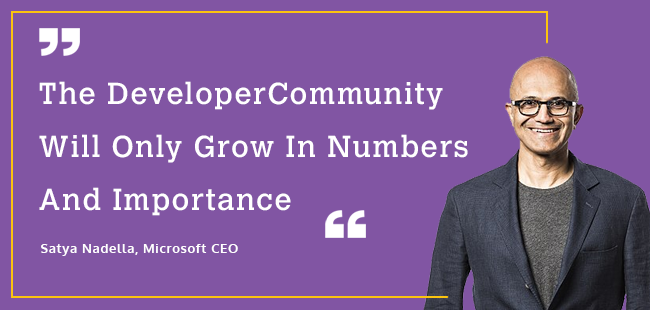Why should all kids learn to code?
Computer-related jobs are expected to grow at the faster-than-average rate of 13 percent through 2026, according to the Bureau of Labor Statistics (BLS). The BLS also reports that the median annual salary for these professionals in 2017 was $84,580, which was more than twice the average for all occupations ($37.690).

The Language
Of The
21st Century
In our increasingly digital-driven world, understanding the basics of code is almost similar to what learning to read and write was, back in the early 20th century – without it, you would have been deprived of most opportunities in life.
As a result, computer-oriented jobs are needed four times more than any other profession. That’s why it is so important to prepare your children to acquire skills, relevant to future employment opportunities and essential for their future success, whichever path they choose to pursue.
It’s important to stretch that even for children who will not be code developers in the future, for example, future managers or architects, it is still highly valuable to understand the mechanics of coding – as it underlies any action and decision they will make in the real world.
What makes code learning even better is that it’s not just enhancing future jobs opportunities, but also improving other skills, important for different aspects of life: creativity, problem-solving, collaboration, communication, and lots of other skills as byproducts of kids learning to code.
“Coding is so significant in what happens because coding is the building blocks of the digital technology. so I really believe that all children should learn coding not because we want them to become programmers or developers in the best high tech companies, just because coding is as essential today as reading and writing in order to just understand the world around us.”
– Oren Zuckerman, founder of the media innovation, lab at IDC Herzliya
The most important thing we should teach children today is to pursue their passion and reduce barriers between their passion and getting things done in the actual world.
For example, if I’m really into sports and what I love is football, and I’m using code like ‘scratch’ to create a football game between a few favored players, right now I’m dealing with a lot of math because I need to think about variables, because I need the score for the game, I need to think about geometry because of the positioning that I’m going to position each player on the stage, but I’m not really thinking about it in mathematical terms, I’m just thinking about my passion to create a football game and I want to build it and show it to my friends.
In case you’re not yet convinced about why it’s so important that your kid learn how to code, here is a short list of 9 reasons:
Future Demand
According to Code.org, 71% of all new STEM (Science, technology, engineering, and mathematics) jobs are in computing, yet only 8% of STEM graduates are in Computer Science. Learning how to code will give your child a head start in the real world.
Understanding the world around us
Even with basic programming knowledge, children can change the way they interact with the technologies they use and can open their eyes to the infinite possibilities of coding.
Communication skill
Learning how to code improves logical communication and strengths in both verbal and written skills. By coding, children communicate with the most simple-minded audience imaginable: computers. Actually, learning code means learning a new language.
Creativity skill
When children learn how to code they do not only consume digital media and technology but create it. They don’t just play a game, they imagine their own game/app/website. In coding, children learn through experimentation and strengthen their mind, allowing them to embrace their creativity.
Problem-solving skill
Coding is full of complex problems, and when coding, children must break them down into smaller parts. Computational thinking teaches children how to cope with large problems by breaking them down into smaller and more manageable problems.
Persistence skill
When dealing with complex problems, and making mistakes, children may feel frustrated. By learning to code, children learn how to persist in the face of such challenges.
Collaboration skill
Coding-classrooms, offline and online, create a small community of kids, who must collaborate with each other, to get to the best results. By asking each other questions, sharing experiences and working together to solve complex problems, they’re gain and improve their collaboration skills.
Improve confidence
Parents who registered their children to coding courses report that they’ve noticed their children’s confidence grow as they gain the skill of ‘problem-solve’ through coding.
Coding is fun
It's true that coding improves so many important skills, but it’s also a fun activity. By coding, children can develop their own games, website, apps and much more. They actually build their own dreams and desires!
Testimonials
In conclusion, if your children are interested in coding, help them to learn how to code. If they don’t show interest, still consider it, though. It’s that important, and you’ll be glad you at least gave it a chance.
Interested to know what are the top 10 coding courses out there? – check our comparison table in
